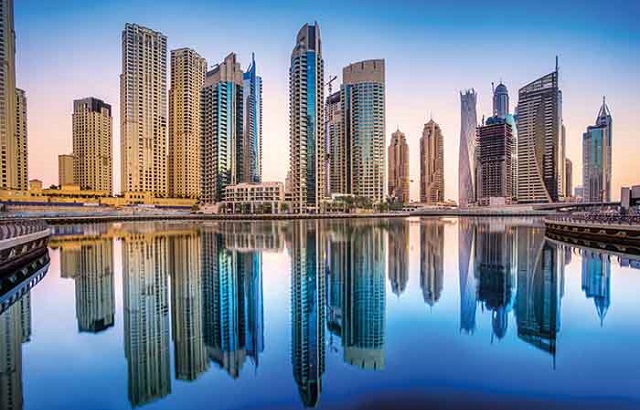US-headquartered global think tank Carnegie Endowment for International Peace has said that Emirati leaders and the international community have turned a blind eye towards issues that make “Dubai a globally attractive destination for dirty money”.
The organisation has written a report called ‘Dubai’s role in facilitating corruption and global illicit financial flows’, which underlines that the world needs to tackle corruption and money laundering in the UAE.
It wrote: “While the vast majority of financial, business, and real estate transactions in Dubai are not associated with illegal activity, part of what underpins Dubai’s prosperity is a steady stream of illicit proceeds borne from corruption and crime.
“The wealth has helped to fuel the emirate’s booming real estate market; enrich its bankers, moneychangers, and business elites; and turn Dubai into a major gold trading hub.
“Meanwhile, both Emirati leaders and the international community continue to turn a blind eye to the problematic behaviours, administrative loopholes, and weak enforcement practices that make Dubai a globally attractive destination for dirty money.”
Historical problems
There does not seem to have been much improvement since 2018, when International Adviser wrote about a report called Sandcastles: Tracing Sanctions Evasion Through Dubai’s Luxury Real Estate Market.
It said profits from Syrian conflict finance, Mexican narcotics trafficking and Iranian nuclear proliferation are being used to buy property in the UAE – often through offshore vehicles.
At the time, the authors said that there were 44 properties worth $28.2m (£21m, €23.8m) “directly associated” with individuals named in US sanctions and a further 37 properties worth $78.8m connected to them via their networks.
The report was the result of a year-long study of unnamed sources of data within Dubai’s property industry which analysts corroborated using open source information on the housing market.
Big issues
The Carnegie Endowment has also spoken about where the money is coming from into the UAE.
“Corrupt and criminal actors from around the world operate through or from Dubai. Afghan warlords, Russian mobsters, Nigerian kleptocrats, European money launderers, Iranian sanctions-busters, and East African gold smugglers, all find Dubai a conducive place to operate,” the authors said.
The report added that property and gold in Dubai were problem areas.
It said: “Dubai’s property market is a magnet for tainted money. Built to attract foreign buyers, the emirate is dominated by towers of upscale flats and man-made islands studded with luxury villas.
“Property developers and real estate agents accept huge sums from politically exposed persons, individuals entrusted with a prominent public function, as well as their families and associates, and other suspicious buyers. Even individuals targeted by international sanctions use Dubai property to launder money due to weak regulations and lax enforcement.
“Now one of the world’s largest gold hubs, Dubai is also a place to launder artisanally mined gold, especially from conflict-prone parts of east and central Africa. Opaque business practices and regulatory loopholes allow this laundered gold to enter world markets on a massive scale.”
Free trade zones
Dubai’s free trade zones are also reportedly part of the problem, as the region was called “a haven for trade-based money laundering”.
“Operating with minimal regulatory oversight or customs enforcement, these zones allow businesses to disguise the proceeds of crime via the over- and under-invoicing of goods, multiple invoicing, and falsifying of other trade documentation,” the Carnegie Endowment said.
“Many migrant workers are also treated as commodities in Dubai through the kafala system, an exploitative migrant labour scheme that shares some characteristics with human trafficking.”
The report also said that the central government of the UAE, Dubai officials, and Emirati law enforcement agencies “largely possess the technical knowledge and capacity to tackle these challenges”.
“Emirati regulators, officials, and law enforcement agents are aware of how Dubai is being used as a conduit for illicit financial transactions. This is a feature, not a bug, of Dubai’s political economy.”
Recommendations
The report offered five recommendations for anti-corruption practitioners, policymakers, international organisations, and other nongovernmental entities looking to “deter and prevent illicit financial flows from transiting through or being absorbed by Dubai”.
They are:
- Western governments should target UAE-based corruption facilitators with travel and financial sanctions;
- Western governments, international organisations, and donors should cultivate, protect, and speak out on behalf of regional civil society groups;
- International organisations should increase their constructive scrutiny of Dubai;
- International organisations, civil society groups, and Western governments should distance themselves from Dubai’s efforts to primp its reputation;
- International companies sponsoring Expo 2020 should weigh the reputational risks that an event designed to celebrate Dubai entail and consider withdrawing their sponsorship.








